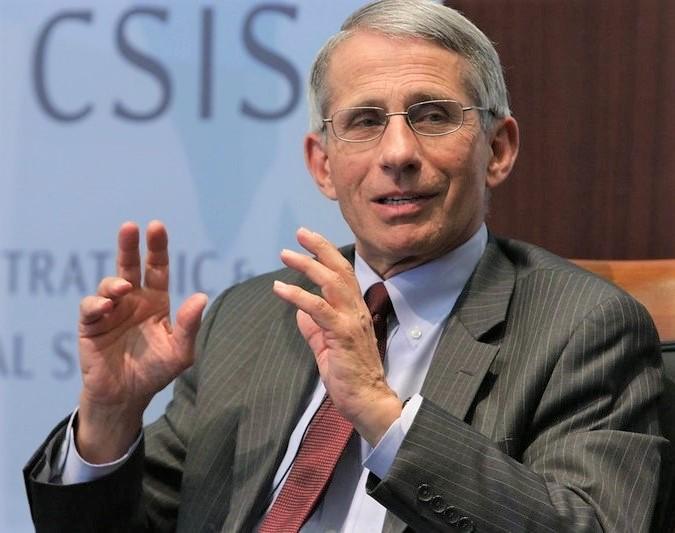Several federal public health leaders—all wearing face coverings—testified to the Congressional House Energy and Commerce Committee today on how the United States is continuing to fight COVID-19 and plan for tough fall that will see the novel coronavirus circulate alongside seasonal flu.
Anthony Fauci, MD, director of the National Institute of Allergy and Infectious Diseases, began by addressing the current surge of cases. Yesterday, US officials tracked 30,451 new COVID-19 infections, a number similar to outbreak highs previously recorded in April. Several southern and western states, including Arizona, Texas, and Florida, are well into their second week of record-setting hospitalizations.
Fauci said the increase in cases is due to community spread of the virus—and not just increased testing.
"That's something that I'm really quite concerned about, and you know that this has been something that's been in the press over the past couple of days," Fauci said. "Over the past couple of days, we were going down from 30,000 to 25 [thousand] to 20 [thousand]. And now we sort of stayed about flat, and now we're going up. A couple of days ago, there were 30,000 new infections. That's very troublesome to me."
Next 2 weeks critical for Florida, Texas, Arizona
Fauci said the next couple of weeks are going to be critical in states' ability to address surges in Florida, Texas, and Arizona.
According to a new Reuters analysis, US cases rose 25% in the past week, a notable increase from a 1% rise in the second week of June and a 3% increase in the first week of June.
Twenty-five states reported an increase of 10% or more new cases, and 10 states noted a 50% increase. Texas reported an increase of 84%, Florida 87%, and Arizona 90%.
"The way you address that—and I've said this over and over again—is you have to have the manpower, the system, the testing to identify, isolate and contact trace in an effective way so that when you see those increases, you can understand where they are coming from, and you can do something about them," Fauci said.
According to the Johns Hopkins University COVID-19 tracker, the US today has 2,332,850 COVID-19 cases and 121,029 deaths.
Experts say they have not been asked to slow testing
Fauci, as well as Robert Redfield, MD, the director of the Centers for Disease Control and Prevention, and Admiral Brett Giroir, assistant secretary for health at the US Department of Health and Human Service, all emphatically stated throughout the hearing that they had never been asked to slow down testing or restrict testing by President Trump.
On Jun 20, Trump said at a campaign rally in Tulsa that he asked people to test less so they would stop finding so many new cases.
"None of us have ever been told to slow down on testing. … In fact, we will be doing more testing," Fauci said
Redfield used his time to highlight the importance of getting a seasonal flu vaccine in the coming months, saying doing so would save American lives.
Though no COVID-19 vaccine will be available this fall, Fauci and Redfield said they were cautiously optimistic that such a vaccine could be available in the beginning of 2021.
Trump visits Arizona
On the heels of his Tulsa rally, Trump traveled to Arizona today to hold several campaign events along the border with Mexico and address up to 3,000 Students for Trump at a Phoenix church.
Yesterday the White House announced that two more staffers who attended the campaign rally in Tulsa tested positive for the virus. Six staffers who conducted pre-rally preparations in Tulsa have also tested positive for the virus.
The two staffers were masked at the rally, White House spokesmen confirmed.
Local leaders in both Tulsa and Phoenix have voiced concerns about Trump's campaign events, largely because they are held inside and thus far have not required face coverings. Today in the New York Times reporters said the location of COVID-19 outbreaks has changed as states have begun to reopen. While the first months of the virus brought outbreaks in nursing homes, prisons, and meat packing plants, the current phase has seen outbreaks linked to crowded bars, casinos, and churches.
In West Virginia, six outbreaks—including three ongoing—are tied to churches. Governor Jim Hustice said he has no plans to close churches, but warned citizens that worshippers must take certain precautions, including mask wearing and physical distancing inside buildings.
In Las Vegas, casino and hotel workers are lobbying for employers and state lawmakers to make masks mandatory among customers. Gambling resumed in Las Vegas on Jun 4, and since then, Clark County has seen an uptick in virus activity.




















